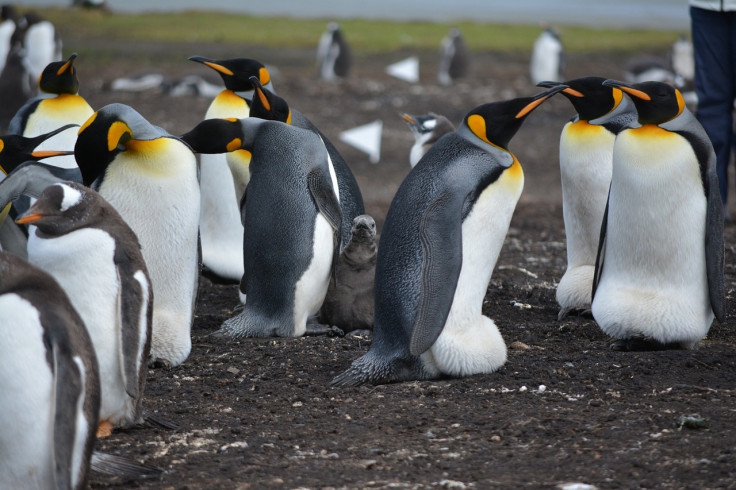Why Are US Tariffs Targeting Australia's Remote Heard And McDonald Islands?

A surprising inclusion of the Territory of Heard Island and McDonald Islands on President Donald Trump's list of nations facing new trade tariffs has sparked widespread ridicule online, as the remote region is inhabited only by penguins.
While it initially appeared bizarre that these uninhabited islands would face a 10% tariff, there's more to the story than meets the eye.
Though the island's residents may not charge tariffs, as indicated in the president's chart, the U.S. does import a small amount of fish caught in their surrounding waters, mostly the high-value Patagonian toothfish and Mackerel icefish, News.com reported.
These fish, primarily caught by Australian companies, are exported to the U.S., where they are highly sought after, especially in fine-dining establishments.
Patagonian toothfish, known for its distinct flavor and high oil content, is especially prized for its ability to be cooked in various ways without losing flavor, making it a favorite among U.S. chefs. The fish is also gaining popularity in retail markets.
As the inclusion of the Antarctic islands caught international attention, Australian Prime Minister Anthony Albanese on Wednesday responded: "Nowhere on Earth is safe," The Guardian reported.
Fishery and its global market
Heard and McDonald Islands, located 4,000 kilometers southwest of Perth, Australia, are among the world's most isolated places. Accessible only by a lengthy two-week boat trip, the islands are uninhabited and have seen little human activity in the past decade.
The surrounding fishery is managed by the Australian Fisheries Management Authority, which sets strict quotas for the amount of fish that can be caught in the region -- just over 2,000 tonnes per year. Two Australian companies, Austral Fisheries and Australian Longline, operate in this fishery, exporting the prized Patagonian toothfish to markets including the U.S. and China.
While the U.S. has sporadically imported fish from Heard and McDonald Islands, the official trade data is unclear. However, industry sources estimate the total annual quota of 2,000 tonnes is worth millions of dollars.
David Carter, CEO of Austral Fisheries, stated that the total production value of the fishery is estimated at AU$50 million to AU$60 million annually. His company sells the fish under the brand Glacier 51 to high-end chefs, including those at Qantas First Class and Nobu Group. While the fish has a strong domestic market in Australia, it is also exported to around 20 countries, with one-third to one-half of the exports going to the U.S.
"So it's meaningful," Carter pointed out, and acknowledged that the U.S. market is important for their business.
Malcolm McNeill, managing director of Australian Longline, noted that approximately two-thirds of their fish exports go to the U.S., with the rest going primarily to China. The U.S. market particularly favors the larger Patagonian toothfish, while the smaller fish are usually sold in China.
"Until the dust has settled, so to speak, it's a bit of watch and wait," McNeill said. "Obviously there will be an impact if the 10% does stick. Where does that get covered, is that from the consumer or us, we don't know yet."
Tariffs could affect U.S. imports
With the fishing season for this year starting in late April, Carter mentioned that his company wouldn't be landing any fish until June, giving them time to assess the impact of the tariff. Austral Fisheries primarily sells to a U.S. importer based in New York.
"Ultimately our customers would just decide whether they can afford the tax. Maybe you lose some of the retailers and stay in some of the more high-end restaurant space where you can carry the premium a bit better. We really are in uncharted territory," Carter added.
Trump's broader tariff plan
President Trump announced on Wednesday a 10% baseline tariff on all imports to the U.S., along with additional "reciprocal" tariffs on certain countries. The White House claims these tariffs are designed to address issues like currency manipulation and trade barriers.
© Copyright 2025 IBTimes AU. All rights reserved.





















